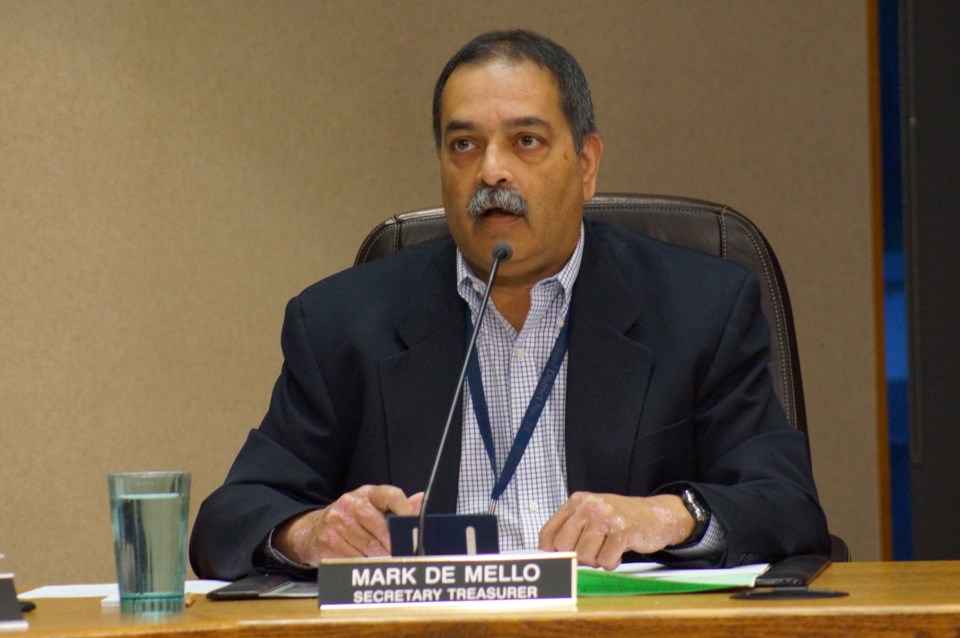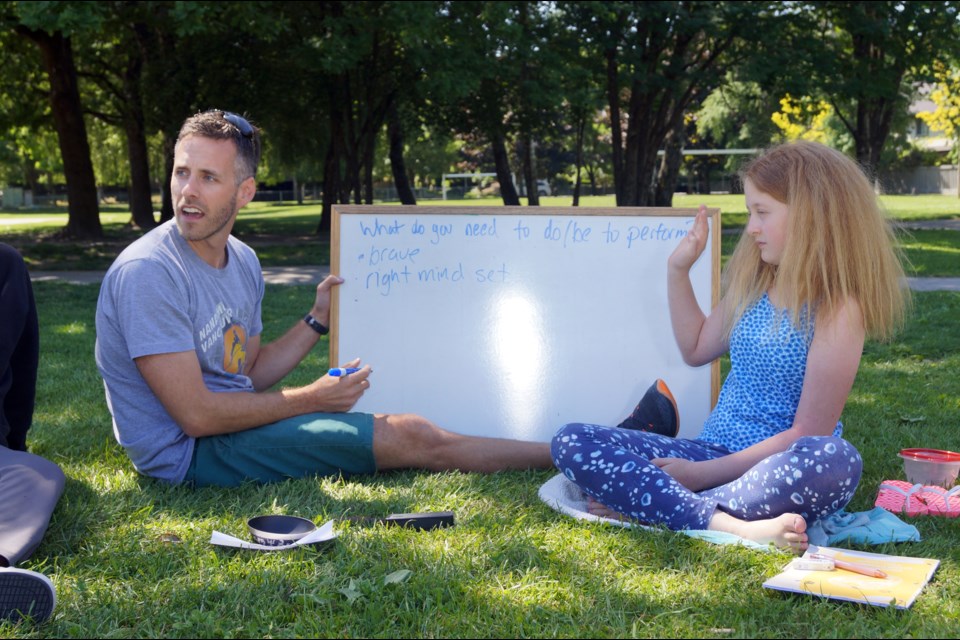The Richmond School District is facing what may be the largest funding deficit in its history, as declining enrollment continues to plague trustees, who will be forced to make more difficult program cuts come June.
Secretary treasurer Mark de Mello announced Monday the district is facing an estimated $10.5 million shortfall for next year’s operating budget — largely a result of the cumulative effect of a 10 per cent decline in the student population over the last five years.
The revenue drop due to declining enrollment (411 students this year, from 20,756 to 20,345) is pegged at $3 million; a lift on a seven-year freeze of management salaries will cost $1.5 million; the district is unable to draw $2 million from its operating surplus, as was done last year; and $4 million is needed to fund capital assets, as its capital reserves have been depleted to balance previous budgets.

“Last year, we balanced the budget with that $2 million. We had never done that before, but we went out on a limb and hoped this year would be better, due to an election year; but that hasn’t happened,” said Board of Education chair Debbie Tablotney.
Last year, the district cut some indoor air quality services, trimmed school supplies (about $15 per student) and eliminated 10 teacher positions.
Tablotney said fewer teachers required due to declining enrollment will make up for some of the shortfall, but the board has yet to begin exploring other areas to cut.
The cuts are expected to be so significant that the district is planning special public meetings this spring, to iron out the public’s priorities.
“We try to keep it as far away from the classroom,” she said. “I think trustees are really concerned. This kind of number is certainly disheartening. And trustees have expressed that concern to the Ministry of Education.”
Kim Nowitsky, of the parent group Richmond Schools Stand United, which formed last year to advocate for seismic funding of 25 “high-risk” schools, said the deficit is symptomatic of chronic underfunding of public education.
Nowitsky suspects the board will need to look at cutting the likes of the few music programs that remain and more costs will be downloaded on parents.
“More costs will be put on parents as we see now with (Parent Advisory Council) fundraising for basic supplies that used to be funded by the Ministry,” said Nowitsky.
The impact of the operating budget deficit must be handled separately from what is expected to be an overall increase in teachers, as a result of a new agreement between the BC Teachers’ Federation and the Ministry, said Tablotney.
Teachers will vote on the agreement today (March 10).
If ratified, B.C. schools, including in Richmond, will see smaller classes, more specialists, such as counsellors, special education teachers, and learning assistance teachers, and more support for children with special needs, said BCTF president Glen Hansman.
Richmond Teachers’ Association president Al Klassen said the agreement — which follows a ruling, last year, by the Supreme Court of Canada that restored teachers’ bargaining rights for class size and composition — should result in a “significant” amount of new teachers. However, details are still forthcoming.



